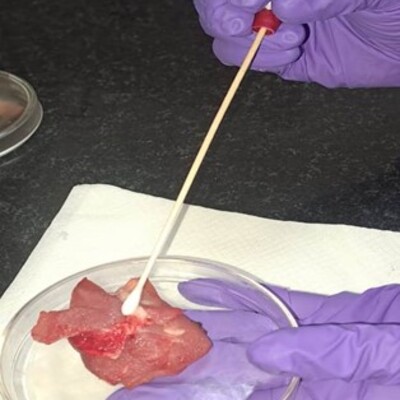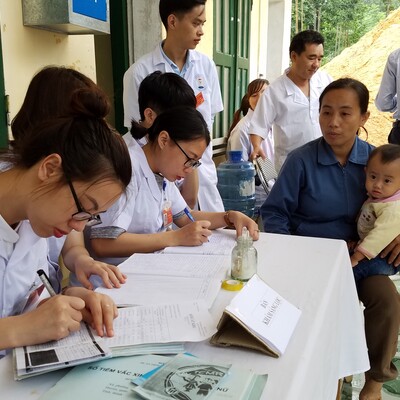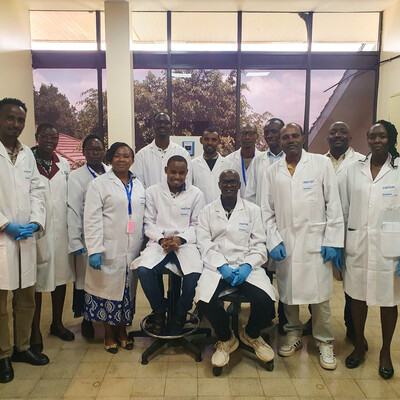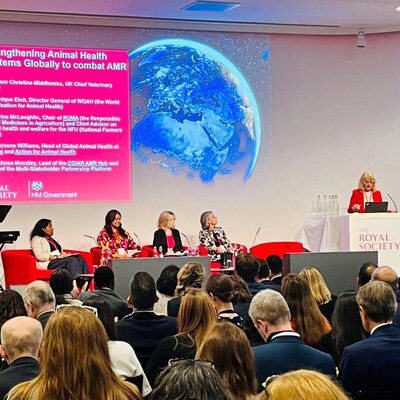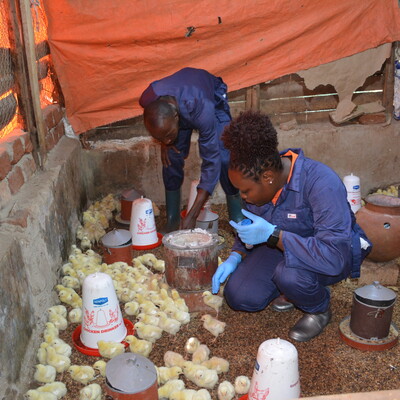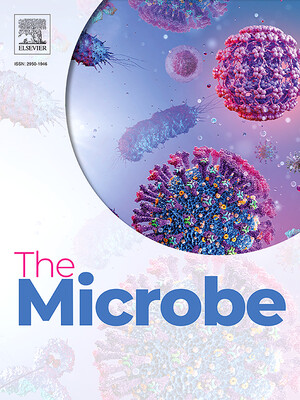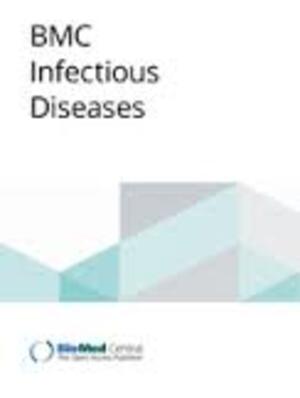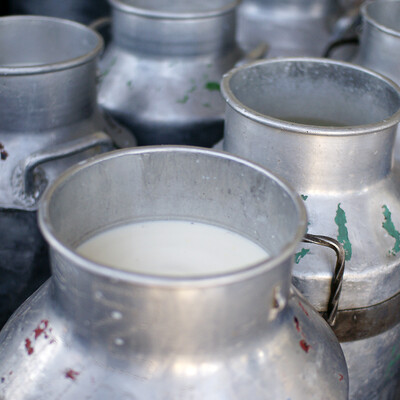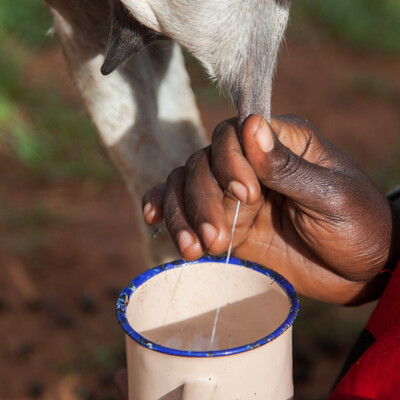
Three of ILRI's Fleming Fellows doing AMR research in Zambia
With 117 active fellowships and 112 total fellows, the Fleming Fund is a United Kingdom-based programme that supports efforts across two dozen countries in Africa and Asia to address antimicrobial resistance or AMR. In response to a UK AMR Review, which estimated that approximately 90% of all AMR-related deaths would come from Africa and Asia by 2050, the programme focuses on improving AMR surveillance, public awareness and responsible use of drugs—particularly in low- and middle-income countries.
The International Livestock Research Institute (ILRI) currently hosts twenty fellows—3 animal health fellows in Zambia; 10 combined human, animal and aquaculture fellows in Bangladesh; 1 AMR policy fellow in Bangladesh; 2 AMR policy fellows in Ghana; and 2 AMR policy fellows in Zambia. Throughout the programme, fellows receive mentorship from host institutions and guidance to define their goals. According to Arshnee Moodley, Team Leader of the CGIAR Antimicrobial Resistance Hub and mentor to one of the fellows, 'the role as the host institution is to provide them with a platform to get as much training. Work plans are co-developed together.' Essentially, fellows develop a work plan brought to the host organization, which is then reviewed in greater detail. It is also an opportunity for fellows to begin creating their network. ‘With our capacity development unit and our own internal expertise and networks and connections, we get to offer that to these individuals’, said Moodley.
Although ILRI is the host organization that provides mentorship and technical support, fellows work directly with what Daniel Ndambasia, one of the animal health fellows in Zambia, called 'beneficiary institutions' in different capacities. Ndambasia, who works for the Zambian Medicines Regulatory Authority and the Department of Marketing Authorization for Veterinary Medicines, examines antimicrobial usage by estimating the amount of antimicrobials being used in the animal sector. Because there is no existing system for accurate record-keeping at the farm level, Ndambasia explained that they obtain estimates by looking at import records and the records from pharmacies and aggravate shops. ‘By law, they are mandated to keep records of their sales and prescriptions, so part of the deliverable of the fellowship was mapping some of these aggravate shops and pharmacies to get AMR usage data.’
Professional development and capacity building are significant components of the fellowship experience. Besides the benefits of yearly conferences, monthly seminars, and regular programming, they're also gaining field expertise. Moodley gave the example of Purity Mayembe, one of the three field veterinarians working as animal health fellows in Zambia. Much of her work plan looked at farmer sanitation and increasing AMR awareness in her community. As part of the research component, she takes samples from the field and analyzes them with other fellows.
Most of the activities she is working on are being conducted at the community level, said Mayembe, who works with the Ministry of Fisheries and Livestock in the veterinary department. ‘We assess the knowledge, attitudes, and practice in these communities to find out their knowledge—are they aware of AMR? We assess how they’re doing their practices, the usual way they are doing them, and how we can improve that.' The work goes hand in hand with sanitation, she said.
Taona Sinyawa—another animal health fellow working under the research department of the government of Zambia at the Central Veterinary Research Institute —visits different veterinary labs to assess their capacity to conduct testing and make determinations about equipment and knowledge gaps. 'There are several individual activities,' she said about the nature of the fellowship and their work, 'but some activities are collaborative, like with Purity, where we’re reaching out to AMR front-liners in different districts in our country to find out what they know about AMR—what are the challenges, and how we can actually address them.’
All three fellows described how the programme has been a tremendous learning experience. 'It exposed me to how exactly to ensure that we have quality results', said Sinyawa, who explained what she has learned about quality control and the importance of documentation for databases. 'Now we're able to document, and we're able to use a database, we have a laboratory management system that is helpful', she said. Ndambasia said that 'it has been an enriching process' that has taught him various skills, 'things ranging from organizational skills to how to structure a research programme.' Mayembe, who has seen growth in her epidemiological understanding, said, ‘I am now able to go in the field and confidently collect surveillance data.’
The fellows are optimistic about how the skills they have gained will translate into the work they will pursue after. 'I'm hoping to continue working in supporting different activities in the country in terms of AMR and ensuring that we still uphold the standards in terms of how our laboratory work is being done,’ said Sinyawa.
Ndambasia agreed that moving forward, the fellows will incorporate the skills they have gained in their work. 'We've also been encouraged to liaise with the National Antimicrobial Resistance Coordinating Committee, so I think we'll be adding value to any form of training experiences we may have.'
Similarly, Mayembe maintained how moving forward it will be about continuing to use their skills professionally and ‘try to incorporate them in the day-to-day activities of our workplace.’
Photo credit: One health and antimicrobial resistance research coordinating workshop, Hanoi, 7-8 October 2019 (ILRI/Arshnee Moodley)






